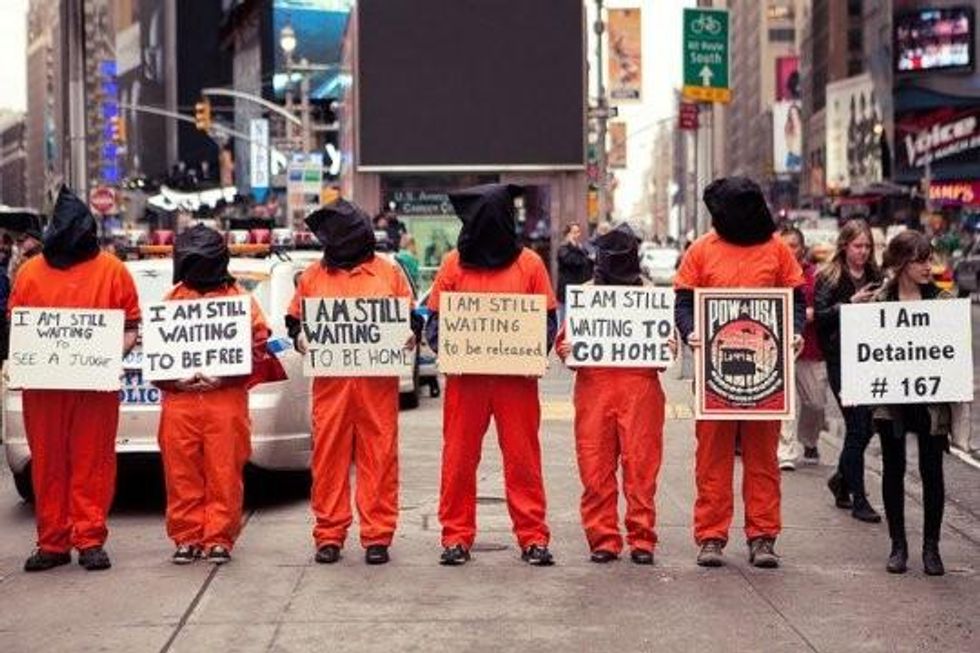A group of Guantanamo detainees on hunger strike for over 100 days has issued a
letter to the military doctors at the detention center urging them to allow the prisoners to receive access to independent medical professionals and "to stop actively contributing to the abusive conditions" forced upon them.
"I do not wish to die, but I am prepared to run the risk that I may end up doing so, because I am protesting the fact that I have been locked up for more than a decade, without a trial, subjected to inhuman and degrading treatment and denied access to justice," and turned to a hunger strike as the only way to make the outside world pay attention, the letter posted by the UK's Guardian reads.
"I do not wish to die, but I am prepared to run the risk that I may end up doing so, because I am protesting the fact that I have been locked up for more than a decade, without a trial, subjected to inhuman and degrading treatment and denied access to justice.""Your response to my carefully considered decision [to go on hunger strike] cannot logically lead to the conclusion that your only goal is to save my life--your actions over recent months do not support such an inference," they write, and describe the brutal conditions those inmates who are being force-fed are subjected to. By contributing to these conditions, the military doctors have violated medical ethics set by the American Medical Association and the World Medical Association, and their actions have been condemned by the United Nations.
The military doctors' "dual loyalties" prevent the detainees from receiving fair treatment, the letter continues.
"I cannot trust your advice, because you are responsible to your superior military officers who require you to treat me by means unacceptable to me, and you put your duty to them above your duty to me as a doctor. Your dual loyalties make trusting you impossible."
"Whether you continue in the military or return to civilian practice, you will have to live with what you have done and not done here at Guantanamo for the rest of your life. Going forward, you can make a difference. You can choose to stop actively contributing to the abusive conditions I am currently enduring."
A document recently obtained by Al Jazeera detailed the brutality of the force-feedings of some of the hunger strikers and showed how the medical professionals at Guantanamo were not acting with medical independence.
"You will have to live with what you have done and not done here at Guantanamo for the rest of your life."The news agency asked Leonard Rubenstein, a lawyer at the Center for Public Health and Human Rights at the Johns Hopkins Bloomberg School of Public Heath and the Berman Institute of Bioethics, to review the Standard Operating Procudure for force-feeding laid out in the document, and his responses paralled the claims made by the prisoners in their open letter.
"It is a very frightening idea that the medical staff is an adjunct of the security force," Rubenstein said.
"The clinical judgment of a doctor or a nurse is basically trumped by this policy and protocol," he continued. "Doctors are not acting with the kind of professional medical independence. It's clear that notwithstanding references to preservation of detainee health in the policy the first interest is in ending the protests."
Guantanamo officials said this month that 102 detainees were on hunger strike, though lawyers for the detainees have said the number is likely 130 to 140 of the 166 prisoners.
President Obama's foreign policy speech last week "failed to provide any meaningful assistance to the hunger-striking detainees being held without charge at Guantanamo Bay," UK-based charity Reprieve said.
_______________________________




